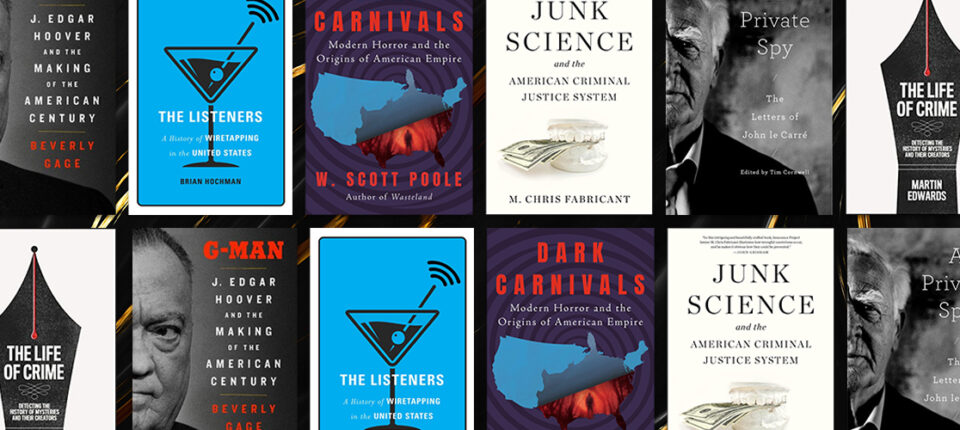The CrimeReads editors select the year’s best critical nonfiction / biography books released in 2022.
*
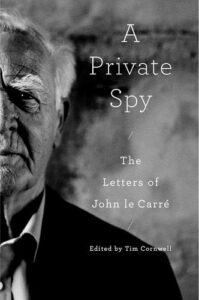
John le Carré (Tim Cornwell, ed.), A Private Spy: The Letters of John le Carré
(Viking)
This collection of the author’s letters, assembled by his son, revels in much the same suggestive restraint as his best fiction: on nearly every page what is left unsaid begins, gradually and surely, to evoke another world. In this case, it’s not the world of spies, but that of a man of letters. Le Carré’s great concern was, it would seem, carving out the proper time and space to get down to his writing. Some of the more whimsical letters involve invitations to friends to visit his remote home: how to get there and then, once they have settled into his guest house, how not to bother him until he’s done with his day’s writing. What emerges is not, by any means, a portrait of a man in full, but rather a guarded glimpse a man who was keenly aware of himself and what was needed to carry on with his life’s work. Le Carré remained, to the end, dedicated to his craft and a thoughtful observer of all things human, including himself. –DM
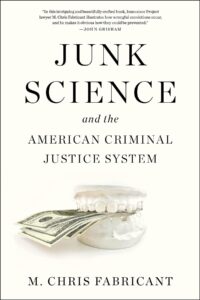
M. Chris Fabricant, Junk Science and the American Criminal Justice System
(Akashic)
Much of the so-called “forensic pathology” developed and professionalized in the 20th century has now been discredited, and DNA has emerged in the 21st century as the only scientifically tested and proven method for forensics-based conviction. M. Chris Fabricant’s ground-breaking new work is here to explain (and explain well) what happened, where we went wrong, and how many have paid the price of junk science convictions. Fabricant’s long involved with the Innocence Project lends his book credence and weight, as he details overturned convictions, shoddy research, and the vast egos that underpinned some of the worst work in the history of criminal (in)justice. –MO
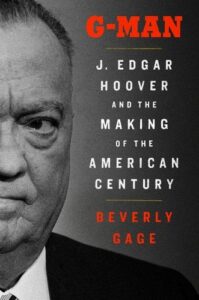
Beverly Gage, G Man: J. Edgar Hoover and the Making of the American Century
(Viking)
Gage’s expansive and insightful study of the longtime FBI director’s life offers yet more evidence for the centrality of Hoover in the American experience of the 20th century: a supremely vain and often paranoid man with roots in white supremacist ideologies, burrowing himself so deep in the governmental apparatus he comes to give it his shape. Leftist and social justice groups were ever in his crosshairs, and his moral compass in dealing with them was so thoroughly skewed it’s impossible to separate his genuinely modernizing law enforcement tactics from his right-wing crusading. He was, in the end, a man of many enemies, bolstered by a massive bureaucracy, with instincts and understanding that kept him in power decade after decade. Gage brings a sharp eye and a nuanced understanding of the national consciousness to bear on Hoover, and the result is a truly powerful reckoning. –DM
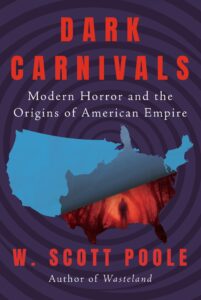
W. Scott Poole, Dark Carnivals: Modern Horror and the Origins of American Empire
(Counterpoint)
This book’s thesis is quite fascinating: W. Scott Poole writes of horror cinema, fiction, and culture as a path towards obliquely understanding an America that is an empire, and deliberately blind to this fact. He sets up two opposing narratives of horror: the Jaws story, where we are all happy in a 1950s America where threats come from the outside, attack us arbitrarily, then are defeated with order restored, and The Texas Chainsaw Massacre narrative, where the cannibals have made a mockery of American manifest destiny and the naïveté of the teenage victims is such they almost deserve their suffering. There is no more vibrant field of criticism than writing on horror, and Dark Carnivals is a worthy addition to a growing field. –MO
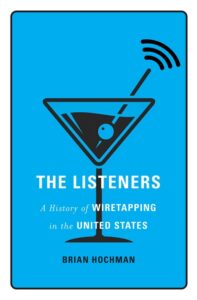
Brian Hochman, The Listeners: A History of Wiretapping in the United States
(Harvard Univ. Press)
Wiretapping and eavesdropping have been around as long as the telecommunications industry, it turns out, and those forces have shaped one another indelibly, just as they have shaped nearly every aspect of American life. That’s part of the central insight in Hochman’s fascinating new study of wiretapping, but it’s only part of it. With his guidance, we see how wiretapping slowly evolved from a controversial practice that seemed to implicate very central notions of constitutional rights to a fact of life—something that nearly all of us understand is going on, in one form or another, at all times. The Listeners is at once a learned, carefully notated academic study, while also serving as the kind of cultural criticism that forces us to consider our own part in a steady erosion of privacy that ultimately challenges some of our most deeply held notions. –DM
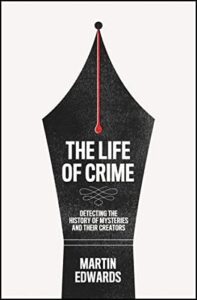
Martin Edwards, The Life of Crime: Detecting the History of Mysteries and their Creators
(HarperCollins)
Martin Edwards is one of the foremost experts on mystery fiction in the world today, and The Life of Crime is his magnum opus, providing essential reading for all true lovers of the genre. In one authoritative single volume, you can now trace the entire evolution of the genre, with plenty of wry anecdotes to spice things up. Equally focused on creators and their work, this is no “death of the artist” history. You can also check out more of Edwards’ writing here!–MO
___________________________________
Notable Selections
___________________________________
Robert Louis Stevenson (Leslie Klinger, ed.), The New Annotated Strange Case of Dr. Jekyll and Mr. Hyde (Mysterious Press) · Andrew Neiderman, The Woman Beyond the Attic: The V.C. Andrews Story (Gallery) · Nina Neseth, Nightmare Fuel: The Science of Horror Films (Tor Nightfire) · Carla Valentine, The Science of Murder: The Forensics of Agatha Christie (Sourcebooks)

